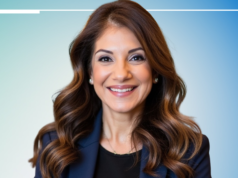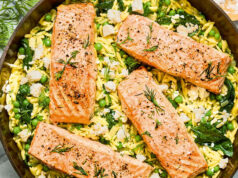According to a 2024 OpenTable survey, 52 percent of participants said they plan to dine alone in 2025—an increase from previous years, with solo reservations rising to 29 percent. Per another survey by travel agency SkyScanner, 62 percent of Americans said they were also planning at least two solo trips in the new year. This surge in solo time “is a reflection of how people are choosing to prioritize themselves in an increasingly fast-paced world,” says Amanda Al-Masari, global vice president of wellness at Hilton.
We’re not just prioritizing ourselves in our extracurriculars, though—research shows we’re also picking “me” over “we” when it comes to relationships. Many folks, particularly Gen Z, are abandoning dating apps, with total dating-app downloads steadily decreasing year over year since their global peak in 2020. And, in a recent survey of nearly 6,000 individuals, researchers found that single women were largely content with being alone and, on average, reported higher levels of overall satisfaction, happiness, and well-being than their coupled counterparts.
Of course, there’s no individual cause or reason for why we’ve all collectively decided to seek solace in ourselves. But as a human living in society right now, it’s not difficult to guess: We’re overstimulated and overexerted. Not only is the current workforce in the throes of the “Great Exhaustion” with 3 to 5 American workers experiencing burnout, but we’re also spending roughly seven hours a day staring at screens and engaging with a nonstop stream of opinions, voices, and faces.
Simultaneously, we’re also trying to live our best and fullest lives—without having the time to do so. This push-pull is a phenomenon often referred to as “time poverty,” according to Thuy-vy Nguyen, PhD, principal investigator at Durham University’s Solitude Lab, a research lab dedicated to studying the effects of alone time. Even if you love having a packed schedule, your daily social grind can still leave you feeling overstimulated, exhausted, and out of time, says Nguyen. “And the more we feel like we are ‘time poor,’ the more we crave some of that time for ourselves,” she says.
In these moments, choosing yourself can feel both freeing and rejuvenating, whether your “alone time” involves flying to an exotic destination on your bucket list, or flying solo at home with a sex toy. “When you choose to spend time alone, you allow for space to assess and embrace what you feel, think, and want in the moment,” says psychologist Scott Lyons, PhD. Not only that, but “actively choosing to be alone gives us an important sense of autonomy,” says psychologist Julia Corcoran, PsyD. “Instead of focusing on FOMO, or fear of missing out—which can feel negative and stressful—many have begun to celebrate moments of JOMO, or the joy of missing out.”
When we’re burned out and drained, our window of tolerance narrows, meaning we don’t particularly want to settle for a subpar dinner date or a weekend away with the friend group you only “kinda” like. “When we’re already tired or overstimulated, we need to find ways to recharge our energy and coping skills,” says Dr. Corcoran. And for many of us, this recharge is best done alone. “Increasing your autonomy can give you back some positive feelings and help you find the energy you need to cope with a demanding situation,” she says.
Whether you choose to travel solo across the world or just to your neighborhood coffee shop, know that you’ll be in good company this year. As solitary experiences continue to gain traction, solitude will no longer be relegated to the realm of introverts and loners, but for everyone and anyone who wants to carve out a little space for themselves.









